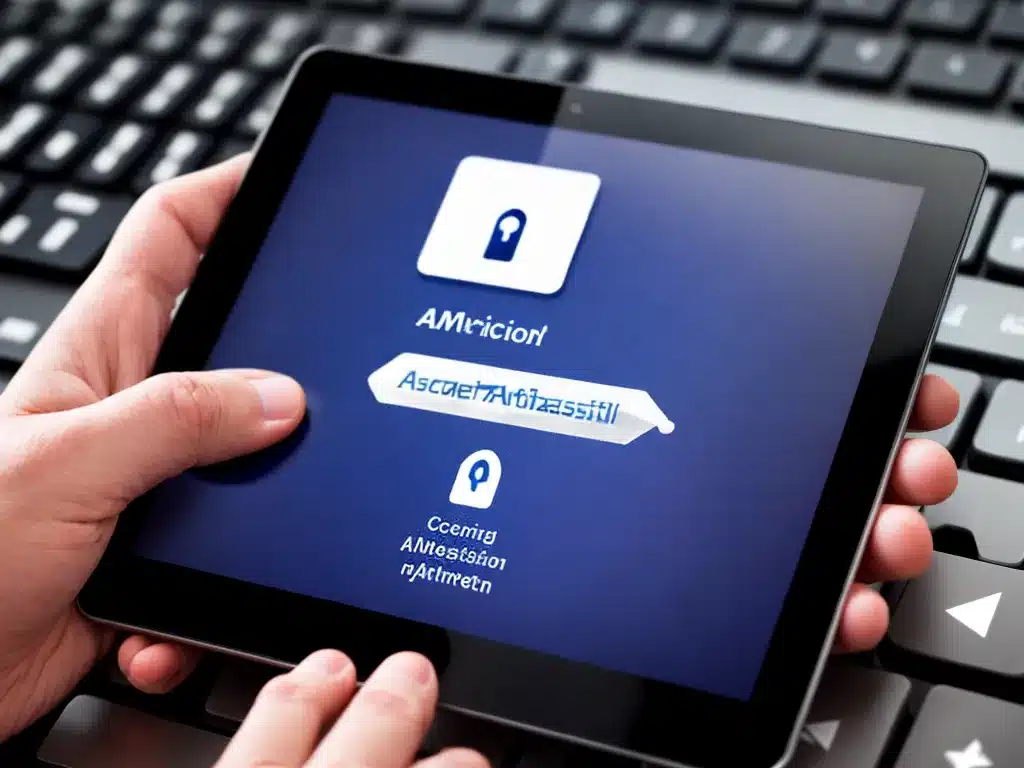
As our world becomes increasingly connected through technology, securing sensitive data is more important than ever. Multi-factor authentication (MFA) has emerged as a critical tool to protect against data breaches and identity theft. In this article, I will explain what MFA is, why it is so important for data security, and provide some real-world examples of how MFA helps safeguard sensitive information.
What is Multi-Factor Authentication?
Multi-factor authentication refers to a security process that requires users to present two or more credentials to verify their identity before being granted access to a system or data.
The most common factors used in MFA are:
- Something you know – Passwords, PINs, security questions
- Something you have – Mobile devices, security tokens, smart cards
- Something you are – Biometrics like fingerprints, facial recognition, iris scans
By requiring multiple factors, MFA ensures that even if one factor is compromised, an attacker still cannot access the user’s account. This adds an extra layer of protection beyond just relying on a password alone.
Why is Multi-Factor Authentication So Important?
MFA is considered a critical security tool for several reasons:
1. Passwords alone are not enough
Passwords have long been the first line of defense for online accounts. However, passwords can be easily hacked, phished, or stolen. According to Verizon’s 2020 Data Breach Investigations Report, over 80% of hacking related breaches involved brute force or the use of lost or stolen credentials.
MFA provides added security even if a password is compromised. Without MFA, a single compromised password can lead to a devastating breach.
2. Data breaches are increasingly common
Data breaches exposing usernames, passwords, and other sensitive data are rapidly rising. The Identity Theft Resource Center reported 1,244 data breaches in 2019, exposing over 164 million records. High profile examples include breaches at Adobe, eBay, Equifax, Yahoo, and many more.
MFA serves as an critical barrier against attackers attempting to breach accounts using stolen credentials obtained from other sites. Enforcing MFA can significantly reduce the risk organizations face from credential theft and reuse.
3. Identity theft and fraud are rampant
With the wealth of personal data circulating online, identity theft and account takeover fraud are serious threats facing consumers and businesses. Over 14.4 million Americans were victims of identity theft in 2018 according to a Javelin Strategy report.
MFA adds a necessary layer of verification to detect cybercriminals attempting to access accounts fraudulently. By requiring the attacker to produce multiple valid credentials linked to the account, MFA thwarts many identity theft and account takeover attempts.
Real-World Examples of MFA Protecting Data
MFA has helped prevent many high-profile data breaches and protected sensitive information:
-
Government agencies – Many government sites including IRS.gov and healthcare.gov require MFA to prevent identity theft and protect citizen data.
-
Banks and financial services – Banks increasingly require MFA for activities like online banking, wire transfers, and account access to block fraud.
-
Social media and email providers – Google, Facebook, Twitter, and Microsoft all offer MFA to safeguard billions of user accounts.
-
Cryptocurrency exchanges – Exchanges like Coinbase and Gemini leverage MFA to protect funds from theft and require MFA for large transactions.
-
Businesses – Cloud software like Salesforce, Slack, and Dropbox implement MFA to protect corporate data and prevent breaches.
The Bottom Line
As cyberattacks and data breaches accelerate, multi-factor authentication has become a necessary component of data security for both individuals and organizations. Relying solely on passwords is no longer enough to protect sensitive information in today’s digital landscape.
Implementing MFA provides significant protection against account takeovers, identity theft, financial fraud, and other threats targeting user credentials. While not completely foolproof, requiring an extra authentication factor goes a long way in keeping data secure and thwarting unauthorized access even if the password is compromised. As more accounts move online, adopting MFA has become a crucial investment in data security.












